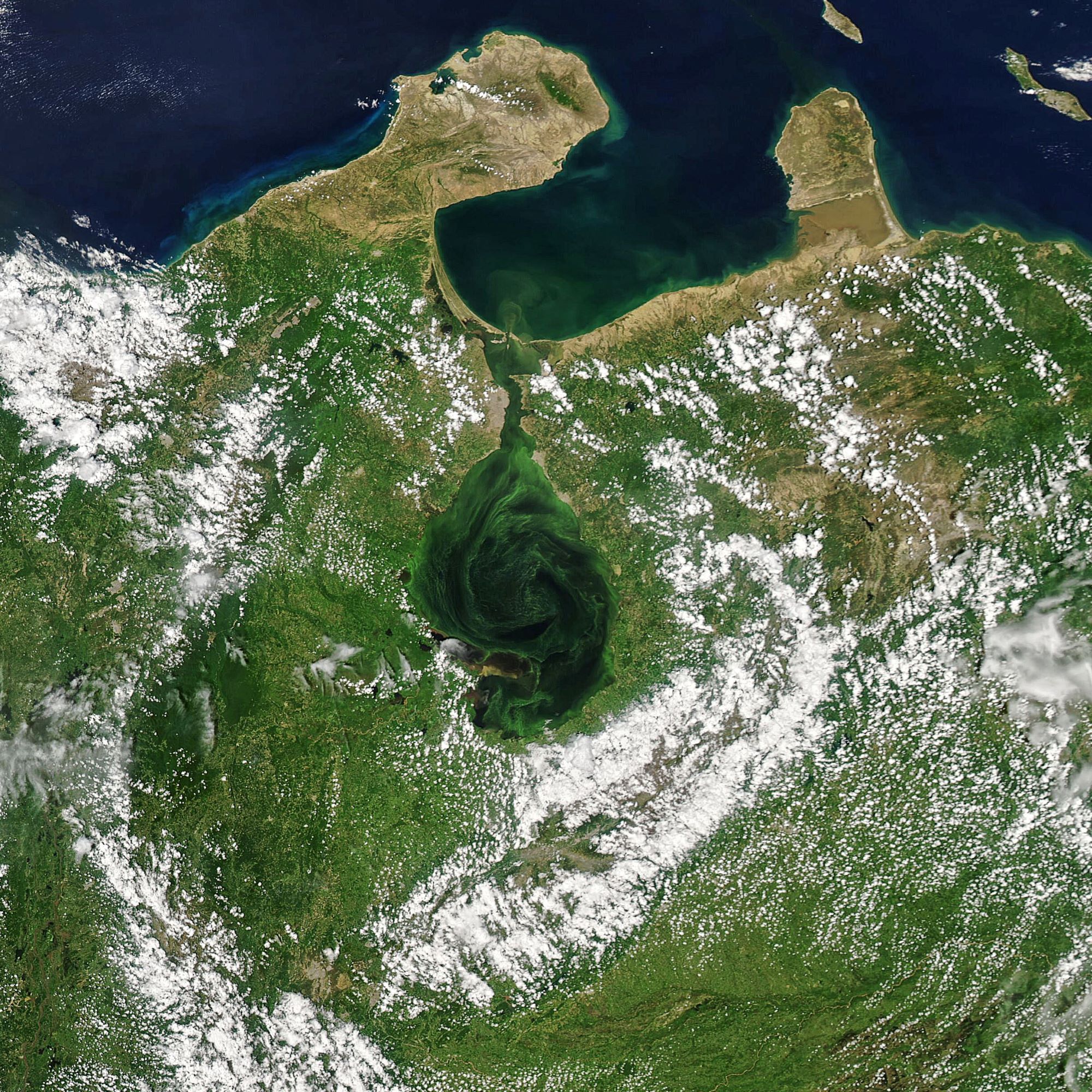[:ja]NASAの地球観測衛星Aquaが撮影したベネズエラのマラカイボ湖です。画像の通り、原油産業が原因で、原油が流出したり、藻が大量に発生したりといった汚染が広がっています。

マラカイボ湖はベネズエラ北西にある塩湖です。北部はせまい水路を通じてベネズエラ湾につながっており、湖水はやや塩分を含んでいます。1918年に湖底と湖岸に油田が発見され、ベネズエラが産油国として認知される契機となりました。現在も湖の東部は油田地帯となっており、水路を利用して大型タンカーが原油の積み出しを行っています。また、この湖では音を出さない雷が度々発生しており、現在科学者の手で研究が進められています。マラカイボ湖の南西部のカタトゥンボ川河口部でいつも雷が光る現象(カタトゥンボの雷)は、大航海時代から存在が知られており、船乗りたちから「マラカイボの灯台」(Faro de Maracaibo) と呼ばれています。2014年、1時間に走る稲妻の数3600本が認められ、「世界で最も稲妻が多い場所」としてギネス世界記録に認定されました。
地上の様子はこちらです。
/cloudfront-us-east-2.images.arcpublishing.com/reuters/O4CGUDCBN5LGDLOVICTLPTX3W4.jpg)
参考文献: Troubled Waters (NASA Earth Observatory)
地球俯瞰画像を見る: LiVEARTH
[Earthview Wonders] No.1440: Pollution of Lake Maracaibo🇻🇪
NASA’s Aqua satellite captured Venezuela’s Lake Maracaibo. The image shows that worsening contamination has changed the lake’s color, spangling it with green algae.

Lake Maracaibo (Lago de Maracaibo), is a large brackish tidal bay in Venezuela and an “inlet of the Caribbean Sea”. It is sometimes considered a lake rather than a bay or lagoon.The geological record shows that it was a true lake in the past, and as such is one of the oldest lakes on Earth at 20–36 million years old. The surrounding Maracaibo Basin contains large reserves of crude oil, making the lake a major profit center for Venezuela. The weather phenomenon known as the Catatumbo lightning at Lake Maracaibo regularly produces more lightning than any other place on the planet.
The local scenery on the ground is as follows.
/cloudfront-us-east-2.images.arcpublishing.com/reuters/O4CGUDCBN5LGDLOVICTLPTX3W4.jpg)
Reference: Troubled Waters (NASA Earth Observatory)
See earthview photo gallery: LiVEARTH[:]